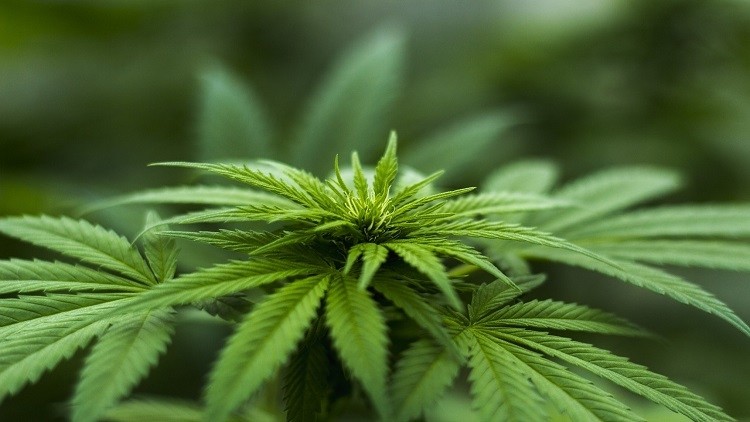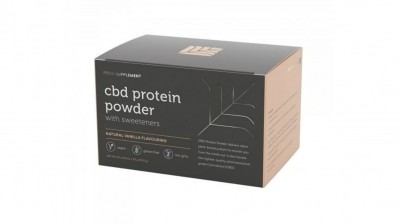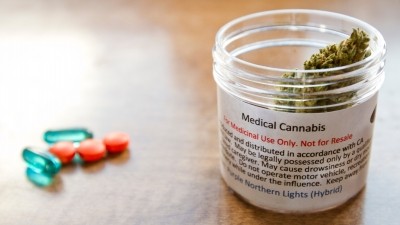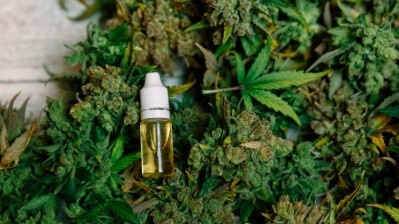Hemp health products boost revenue by 50% at China Health Industries Holdings: Exclusive interview

The financial results released on February 14 showed that revenue grew to US$2.7m from US$1.8m from October and December 2017 to October and December 2018.
In an interview with NutraIngredients-Asia, Xin Sun, CEO of the Heilongjiang-based firm, pointed out that revenue growth was fuelled by sales of its new hemp derivative products, including health foods and cosmetics.
He said that the company has been attending multiple exhibitions and conferences around China which helped spread the health benefits of hemp products.
Producing finished products ranging from hemp oil capsules to hemp cosmetics, the firm sources its hemp supply from its 0.3 acres wide plantation in Heilongjiang – the only other region that the Chinese government has approved to grow hemp besides Yunnan.
“Currently, we have developed about 50 products, we will introduce new products every month and we are in the midst of designing the product packaging. And so, we will focus on producing health products that are made from hemp.
“We are considered the firm which produces the most variety of hemp derivative products in China, and we have our own patents…Previously, we have also participated in many conferences, such as those in Harbin, and also those which are nationally recognised and we have promoted products we have developed in these conferences
“This have helped garner public attention, which explains the sales increment,” Sun said.
Being in the hemp industry for three years, he is targeting to scale up its hemp plantation to nearly 0.5 acres this year. The plantation size had stayed at 0.3 acres for the past two years.
Besides hemp derivatives, the company also sells conventional health foods, such as collagen and multivitamins, and pharmaceutical drugs.
However, Sun foresees that collagen will soon be replaced by hemp, as he noticed that there is a shift towards plant-based proteins.
Popular regions
Selling via its retail stores and e-commerce platforms, the firm observed that hemp derived health products are primarily popular in two Chinese provinces Jiangsu, Zhejiang, and the city of Shanghai.
These three regions alone contribute about 60% of the total sales, Sun revealed.
“The sales performance is better in well-developed regions, because the information spreads around faster and the consumers’ buying power is greater,” he said
Besides the three regions, its chain stores are also found in Hefei and Harbin, which are places where the firm enjoys a stronger market foundation and invests itself with greater publicity efforts.
As part of its expansion, the firm is now eyeing the south of the country by extending its presence into Guangdong and Guangxi. Logistics arrangements to transport the end-products to the two regions have begun before Chinese New Year (CNY).
“Guangdong will definitely rise up quickly. We will start selling the products after CNY is over. We will sell through our franchises.”
According to Sun, the firm’s most popular hemp health foods are hemp protein powder and hemp polypeptide, and the middle-aged group makes up the bulk of its consumers.
“There are more middle-aged consumers. In the past, it used to be the case where the elderly are more concerned about their health. However, as the middle-aged people are exposed to more information (circulated via the internet), they tend to receive information sooner.
“In China, we do enjoy a competitive edge since we started this trade early, therefore, even if others were to imitate us, they will need some time to do so.”
Not without misconceptions
Having said that, the public does not necessarily view hemp products in the good light all the time.
Sun acknowledge that there was still some public misconception about hemp products, as some thought that hemp is the same as the marijuana drug.
In the Chinese language, there is no equivalent term for hemp – which only contain traces (0.3% or lesser) of psychotic substance Tetrahydrocannabinol. Hence, people tend to view hemp and marijuana as the same item.
“The moment people hear the term ‘da ma’ (which is interchangeably used for hemp and marijuana in Chinese), they will wonder if this is the same as the prohibited drug.
It is only after a closer observation then will they realise that this is not a drug and that it can be beneficial to human health…This is when people start to grow interest towards hemp.”
His takeaway was that constant publicity would build up consumers’ acceptance.
“If you do not talk about it (hemp), they (the public) will think that we should stay away from these ‘drugs’.”
Overseas markets
Outside of China, the company also sells the original CBD ingredient or OEM products to the West, mainly to the US and Canada.
There are also queries from Germany to sell OEM CBD products, such as CBD cream or CBD suppository for alleviating body pain.
On the other hand, finished products are mainly sold within China.
Plans for 2019
To level up its hemp business, Sun said the firm would focus on producing general hemp health foods, since the Chinese regulations do not permit the development of CBD medicines at this point in time.
Other than the hemp plantation, the firm also operates its own R&D centre and manufacturing lines for developing hemp products.
In China, other notable hemp advocating firms include Beijing-based Hemp Investment Group which advocates pharmaceutical use of hemp and SkyGreen which makes hemp food.



















